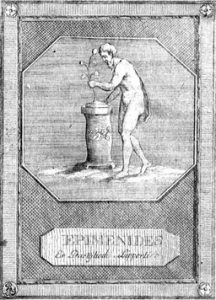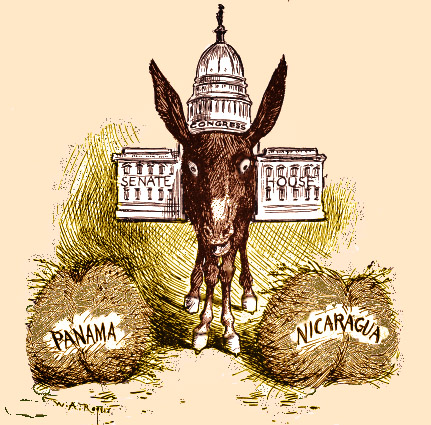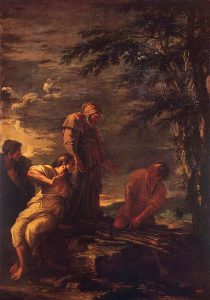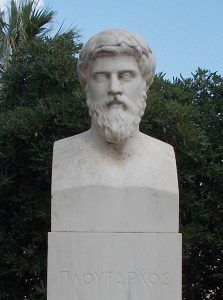This is a list of the 10 best paradoxes that will blow your mind. A paradox is a situation or statement that seems impossible or is difficult to understand because it contains two opposite facts or characteristics. The best paradoxes can leave you confused, and befuddled for hours on end, until you finally solve it or decide to give up.
The Grandfather Paradox

A time traveller goes back in time, so far back that his grandfather, hasn’t yet met his grandmother. He then, due to certain circumstances, ends up killing his own grandfather before he was able to meet his grandmother. Which means he was never born, but if he was never born how could he go back to kill his grandfather? This means the time traveller would be born anyway, and then kill his grandfather.
The paradox first appeared in a story called Ancestral Voices, by Nathaniel Schachner. Another variation is the Hitler paradox. If you went back in time to kill Hitler in order to stop World War Two, then world war two wouldn’t happen. This means your motivation to go back is gone, so wouldn’t go back in time to kill Hitler, which means World War Two, would still happen. This is one of the best paradoxes because it raises interesting questions about time travel.
The Hypergame Paradox

Hypergame is a turn based, two player game. Player 1 says let’s play hypergame, and then chooses a two player, turn based game, which is finite. The winner of the chosen game, wins hypergame. But is hypergame a finite game, or an infinite game. If player 1 picks a finite game, then hypergame is finite, but what if player 1 picks hypergame as the game to play? Each player could keep just picking hypergame which would mean the game would go on forever. So is it infinite, or finite?
The liar

“All Cretans are liars”, is the immortal statement made by Epimenides, who was Cretan. The self reference makes it a puzzle as to whether he was telling the truth or not. The solution isn’t that hard to spot. There is only a paradox if you assume that he is telling the truth. If you assume he is lying, then there is no paradox. If he is lying then there must be at least one Cretan who is honest, which is possible as that Cretan isn’t necessarily Epimenides. Epimenides was a philosopher and prophet from the 6th century BC. He was a partly mythical figure who was said to have fallen asleep in a sacred cave for 57 years, and when he woke up had the gift of prophecy.
Ship of Theseus
This paradox was created by plutarch:
“The ship wherein Theseus and the youth of Athens returned from Crete had thirty oars, and was preserved by the Athenians down even to the time of Demetrius Phalereus, for they took away the old planks as they decayed, putting in new and stronger timber in their places, in so much that this ship became a standing example among the philosophers, for the logical question of things that grow; one side holding that the ship remained the same, and the other contending that it was not the same.” Is the ship of Theseus still the ship of Theseus if all of it’s parts are replaced, but it looks the same?
The Barber Paradox

Imagine a town with only one male barber, with a rule he never breaks. The rule is that he shaves all and only those men in town, who don’t shave themselves. Does the barber shave himself. If the barber does shave himself, then according to the rule he doesn’t shave himself. If he doesn’t shave himself, then according to the rule, he must shave himself. It’s impossible for such a barber to exist without breaking his own rule.
Buridan’s Paradox

Imagine a donkey who is both thirsty and hungry, standing equal distance between a stack of hay, and a pail of water. The donkey will move towards whichever one is closer, but since they both an equal distance it can’t decide which one to move towards and starves. The paradox is named after French philosopher Buridan, but the first known person to make the paradox was Aristotle. He used the example of “a man, being just as hungry as thirsty, and placed in between food and drink, must necessarily remain where he is and starve to death.”, in order to disprove the idea that the world is stationary, just because it is circular.
The Paradox Of The Court

Protagoras agreed to teach one of his students under the agreement that the student, Euathlus would pay him after he had won his first court case. In the end Euathlus never managed to pay Protagoras for his education, because he never took on any clients. Protagoras then tried to sue Euathlus for the money he was owed. The idea was that if Protagoras won, then Euathlus would have to pay him, and even if Euathlus won, he would have to pay Protagoras because he had won his first case. Euathlus said that if he won, then he wouldn’t have to pay since he won the case, and if he lost then he wouldn’t have to pay since he never won a case. This is one of the best paradoxes because something like this could actually happen.
Heterological
A heterological word is a word that does not describe itself. Does the word heterological describe itself? This is one of the best paradoxes because it’s so simple, yet it can get you thinking for hours.
The Tea Leaf Paradox

When stirring a cup of tea, the tea leaves settle at the bottom and centre of the cup, rather than at the edges, as you would expect from the centrifugal force acting on it. The solution was found by Albert Einstein, who wrote:
“I begin with a little experiment which anybody can easily repeat. Imagine a flat-bottomed cup full of tea. At the bottom there are some tea leaves, which stay there because they are rather heavier than the liquid they have displaced. If the liquid is made to rotate by a spoon, the leaves will soon collect in the center of the bottom of the cup. The explanation of the phenomenon is as follows: the rotation of the liquid causes a centrifugal force to act on it. This in itself would give rise to no change in the flow of the liquid if the latter rotated like a solid body. But in the neighbourhood of the walls of the cup, the liquid is restrained by friction, so that the angular velocity with which it rotates is less there than in other places nearer the enter. In particular, the angular velocity of rotation, and therefore the centrifugal force, will be smaller near the bottom than higher up. The result of this will be a circular movement of the liquid of the type illustrated in Fig. 1 which goes on increasing until, under the influence of ground friction, it becomes stationary. The tea leaves are swept into the center by the circular movement and act as proof of its existence.”
The Toxin Puzzle

An eccentric millionaire approaches you and offers you one million dollars, if you intend to drink a poison. The poison doesn’t have any adverse effects, but it will make you incredibly ill for one day. You have to intend to drink the poison at midnight tonight, before actually drinking the poison tomorrow afternoon. You only need to intend to drink the poison in order to get the money, the millionaire has some way of knowing what your intention is. The next day after you have intended to drink the poison, the money will be in your bank account, and you can choose not to drink the poison. So how can you intend to drink something, without actually drinking it?













